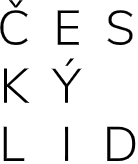Datum zveřejnění:
25.3.2020
DOI: https://doi.org/10.21104/CL.2020.1.03
Creative Commons Attribution NonCommercial-NoDerivatives 4.0 International.
Abstrakt:
The term “medical pluralism” is often used to describe the coexistence of different medical traditions based on different principles or worldviews in a society. The paper starts with a discussion on the concept of medical pluralism, introduced for the first time by Charles M. Leslie, then presents a theoretical framework of the exclusive medical model, which recognizes only one legal system of medicine. The author then considers folk medicine and psychotronic activities, as well as describes and analyses the healthcare situation that existed during the socialist period in former Czechoslovakia, which at a first sight seems to have been characterized as a monopoly concerning the practice of medicine, and compares it with the contemporary pluralistic situation that emerged in both the Czech Republic and Slovakia after the “Velvet Divorce” in 1993. The paper concludes by stating that government attitudes toward the existence of non-biomedical practices have undergone different development stages. In turn, it is acknowledged that the investigation of medical pluralism in Central European countries must deal more comprehensively with political and ideological history in the context of healthcare.
Klíčová slova
medical pluralism, alternative and complementary medicine, folk medicine, psychotronics, materialism, political forces.
Text článku
Reference
BAER, A. Hans, 2011. Medical Pluralism: An Evolving and Contested Concept in Medical Anthropology. In: A Companion to Medical Anthropology. Oxford: Blackwell, pp. 405-424.
BEDNÁRIK, Rudolf, 1954. Ľudová liečba na Slovensku. [Folk healing in Slovakia]. Bratislava: SPN.
BELKO, Dušan, 2000. Psychotronická problematika: história a súčasnosť. [Psychotronics Issues: History and Present] Psychotronica Slovaca. 2000, 5-18.
BUŽEKOVÁ, Tatiana, 2015. Medical anthropology: a new field of research in Slovakia. Human Affairs. 25(3), 276–287.
PIĄTKOWSKI, Włodzimierz, MAJCHROWSKA, Anita, 2015a. Unconventional therapists and their patients in Polish traditional folk medicine. Anthropological Review. 78(3), 243-250.
PIĄTKOWSKI, Włodzimierz, MAJCHROWSKA, Anita, 2015b. Health, illness and dying in Polish folk medicine. Prog Health Sci 2015, 5(1), 214-224.
CANT, Sarah, SHARMA, Ursula, 1999. A New Medical Pluralism? Alternative Medicine, Doctors, Patients and the State. London: Routledge.
HSU, Elisabeth, 2008. “Medical Pluralism.” In: International Encyclopedia of Public Health: J-O. Vol. 4. Amsterdam: Elsevier, pp. 316-321
KOVÁČ, Peter, 2008. Činnosť ľudových liečiteľov a trestná zodpovednosť. [The activity of folk healers and criminal responsibility]. In: Justičná Revue. 60, 1181-1187.
KŘÍŽOVÁ, Eva. 2015. Alternatívni medicína v České republice [Alternative medicine in Czech republic]. Praha: Univerzita Karlova v Praze.
LESLIE, Charles, ed. 1976. Asian Medical Systems: A Comparative Study. Berkeley: University of California Press.
LESLIE, Charles, 1980. Medical Pluralism in World Perspective [1]. Social Science and Medicine 14(4), 191_195.
LOUX, Francoise, 1993. Folk Medicine. In: Companion Encyclopedia of the History of Medicine. London: Routledge, 661-675.
MICHAELS, A. Paula, 2003. Curative Powers: Medicine and Empire in Stalin's Central Asia. Pittsburgh: University of Pittsburgh Press.
MOTYČKOVÁ, Dana, 2003. Lidové léčitelství. Léčitelé. Alternatívni medicína [Folk healing. Healers. Alternative medicine]. Praha: Etnologický ústav AV ČR.
ONG, Chi-Keong, HOG, Erling, BODEKER, Gerard, BURFORD, Gemma, 2005. Regional Overview: European Region. In: WHO Global Atlas of Traditional, Complementary and Alternative Medicine. Kobe: WHO, pp. 109-116.
ROSS, I. Anamaria, 2012. The Anthropology of Alternative Medicine. London: Berg.
SAKS, Mike, 2005. Political and historical perspectives. In: Perspectives on Complementary and Alternative Medicine. Abingdon: Routledge, pp. 53-73.
SHARMA, Ursula, 1996. Using complementary therapies: A challenge to orthodox medicine? In: Modern medicine: Lay perspectives and experiences. London: UCL Press, pp. 230-255.
SOLÁR, Gustáv, 2013. Introduction to natural medicine. Acupuncture and Natural Medicine. 2013(1), 4-9.
SPIEGEL, David, STROUD, Penny, FYFE, Ann, 1998. Complementary medicine. Western Journal of Medicine 168(4), 241–247.
SIRIOUS, M. Fuschia, GICK, L. Mary, 2002. An investigation of the health beliefs and motivations of complementary medicine clients. Social Science and Medicine. 55(6), 1025–37.
